As the UK government has instructed the nation to stay at home and only venture out for specific, essential reasons in light of the Coronavirus (Covid-19) situation, many of us are being encouraged to park our cars if we can. Some owners of Toyota hybrids might be wondering what will happen to their car during long periods without use, particularly when it comes to the level of charge in the batteries.
The reassuring news is that no difficult car maintenance is necessary. However, there are some tips that, if followed, can help ensure your Toyota remains in tip-top condition during an extended layoff.
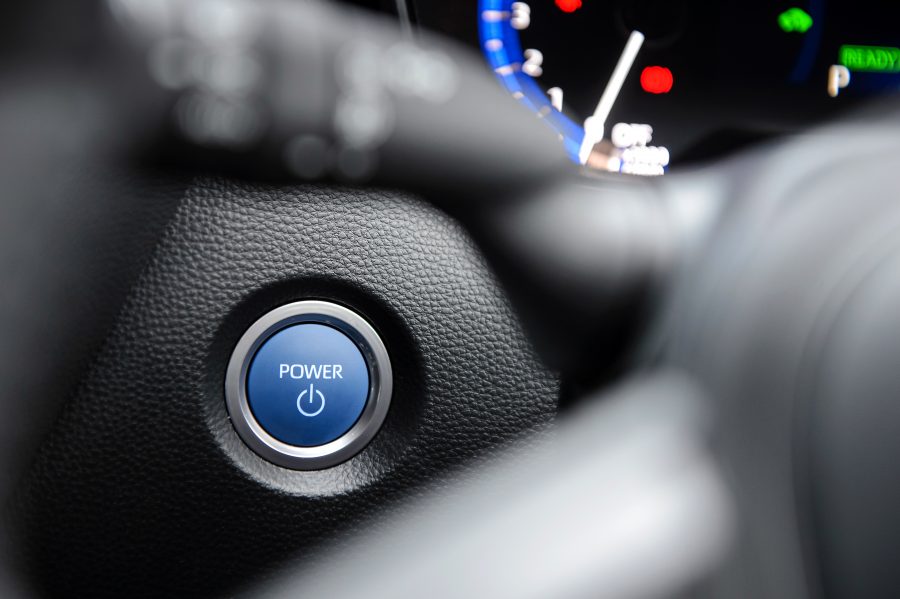
To recap, Toyota hybrids generally contain two batteries: a 12-volt battery (which powers systems such as the headlamps and audio) and a high-voltage hybrid system battery (which supplies the power to start the combustion engine and drive the electric motors).
The simplest way to maintain charge in both of these batteries is to simply go through the normal start procedure: press the ‘Start’ button with your foot on the brake and ensure the ‘Ready’ light is illuminated on the dashboard (you don’t have to keep your foot on the brake thereafter, but ensure your vehicle’s transmission is in ‘Park’ and the parking brake is engaged).
We recommend you put the car in ‘Ready’ mode for about 60 minutes before switching it off again and repeat the process at least once a week, providing you can carry out this procedure while adhering to the government’s advice regarding social distancing and Coronavirus (Covid-19). Please do not leave your car unattended when it is in ‘Ready’ mode.
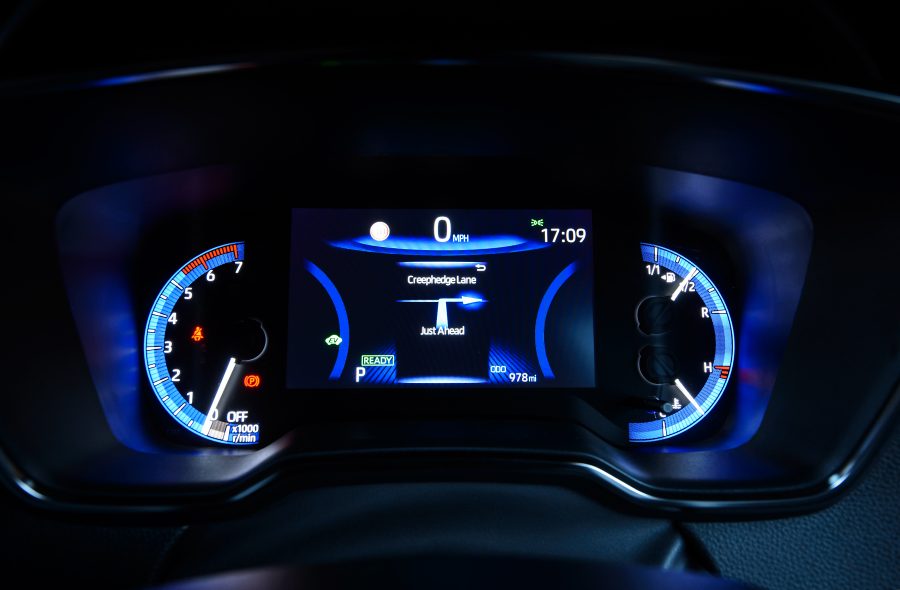
During the time that that car is in ‘Ready’ mode, you may hear and feel the internal combustion engine kick in; this is a normal part of the self-charging process. You might be tempted to switch on the radio to pass the time, or turn on other systems, but bear in mind these will consume small amounts of electrical power so it is preferable to leave them off.
Ensure the handbrake is on; there’s no need to go for a drive, although we must stress that this procedure should take place in a well-ventilated area – something to consider if you park your vehicle in a garage.
What if my Toyota isn’t a hybrid?
Our petrol and diesel cars only have a 12-volt battery, which provides the power to start the engine in addition to the other systems mentioned above. Regular start-up of the vehicle on conventional petrol and diesel engines needs approximately 20 minutes of running to put back into the battery what you remove on start up, so to maintain this battery we would suggest 60 minutes of running at least once a week.
Is there anything else I need to do?
Whether you own a hybrid or a Toyota equipped solely with an internal combustion engine, there are a few other easy car maintenance points that can ensure your Toyota hybrid remains healthy and happy during an enforced hibernation. Again, please adhere to the latest government advice regarding social distancing.
- Check the tyre pressures are fully inflated to the recommended level and top-up if necessary. It can be a good idea to repeat this process when you first drive your car after a long period of inactivity.
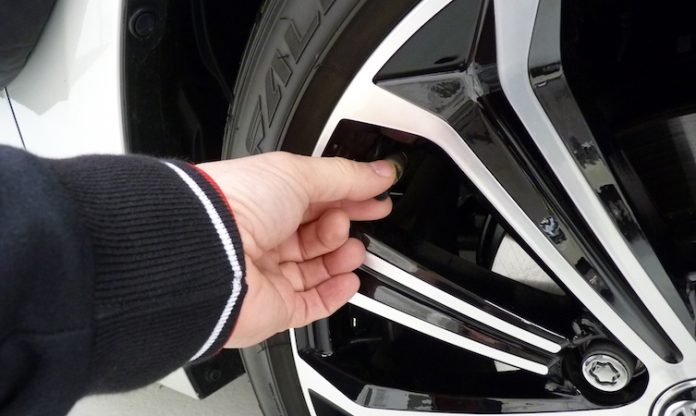
- Clean the car thoroughly inside and out. If you are storing your car in a garage, make sure the vehicle is completely dry before you put it away.
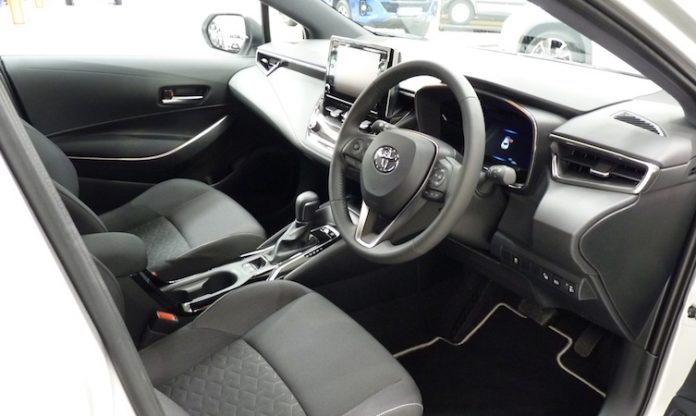
- If you do plan to store your car in a garage, ensure the chosen storage area offers plenty of ventilation. If the space is secure, you could consider opening one of the car’s windows a small way to ventilate the interior. If you do this, you might have to change your car alarm’s setting to prevent it setting off the intrusion sensor – please consult your car’s manual for more information.
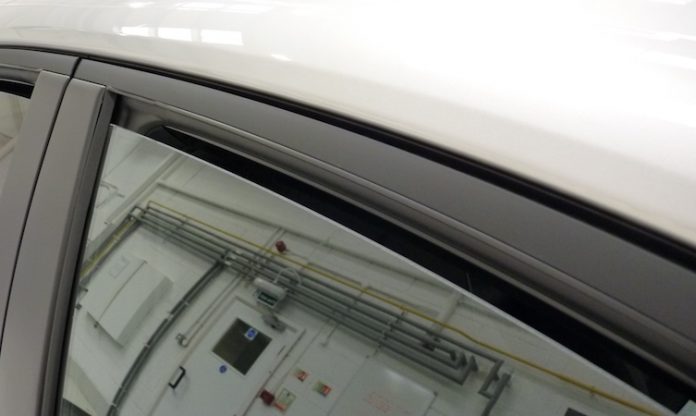
- It can be beneficial to leave the vehicle with the parking brake disengaged to prevent the brakes from binding, but only do this if you are certain the car is on level terrain and isn’t going to move. Ensure the transmission is set to ‘P’ for park and place wedges or chocks, if you have them, under the wheels.
- If you have a 12V battery trickle charger, or a solar panel charger, and are confident using them, then these are a good option to keep the battery fully charged while the vehicle is stationary for a period of time.
- If your vehicle is equipped with smart entry and start but the system isn’t operated for a long time, a battery-saving function will automatically be activated to prevent the electronic key battery and the 12-volt battery from being discharged. Battery depletion in the key is minimised by stopping the electronic key from receiving radio waves. On many models equipped with this system, it is possible to manually put the key into battery-saving mode, so please consult your car’s handbook for more information. If you aren’t planning to drive your car for a long time, consider putting the smart key in a safe place and not carrying it around with you in your pocket. This will prevent the car from ‘waking up’ unnecessarily should you happen to walk near it in your garage or driveway.
- If the vehicle will be kept on private property (such as inside a garage) for the duration of its storage, you could consider applying for a Statutory Off Road Notification (SORN). This informs the DVLA that the car is off the road and you will receive a refund of any remaining full months of tax. However, you won’t be able to drive your car legally until you tax it again, so it is only advisable if you are positive you won’t use your car for a long time. You can read more information about how to SORN your car here.
Read more Toyota GB’s latest statement on the Coronavirus (Covid-19) situation
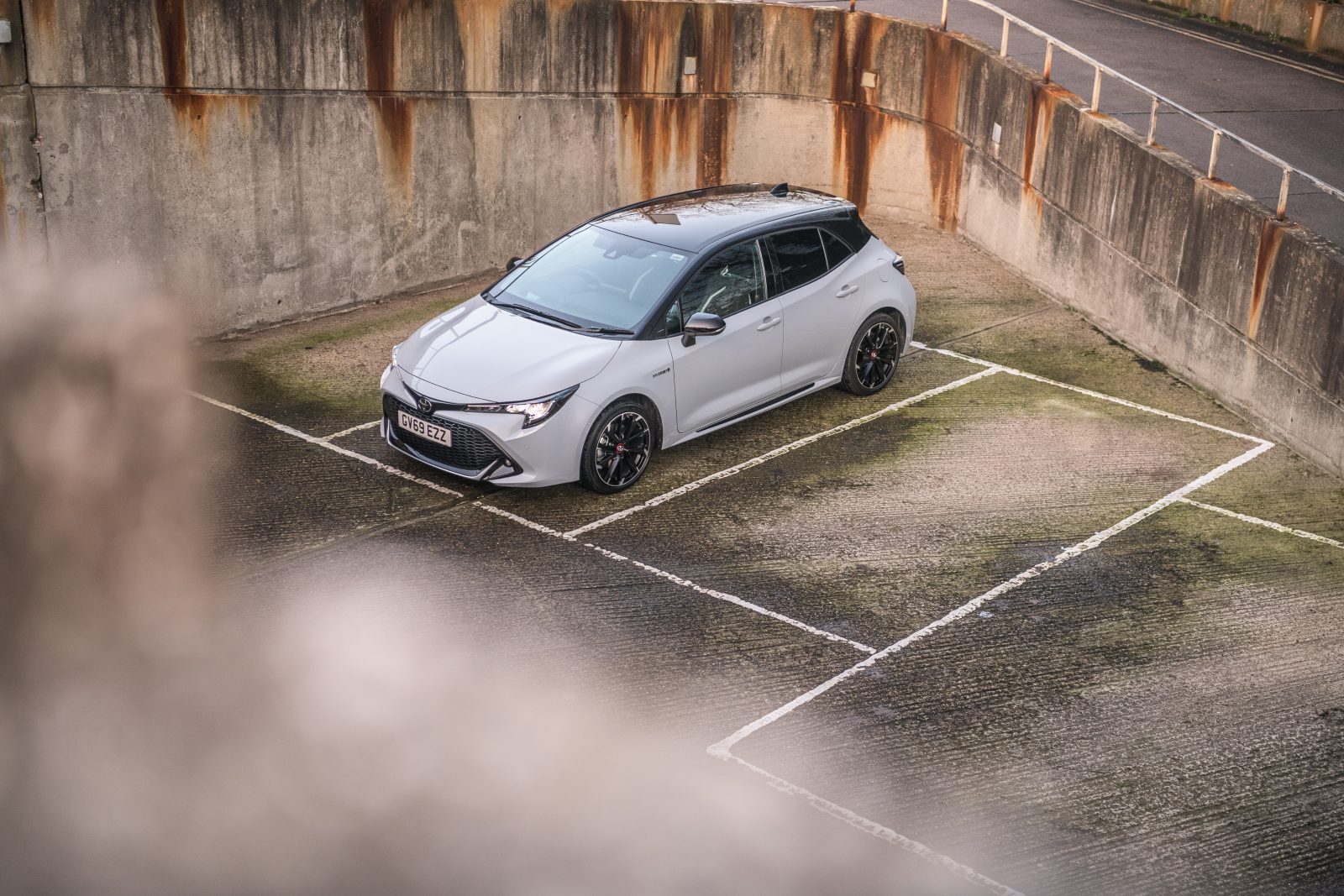

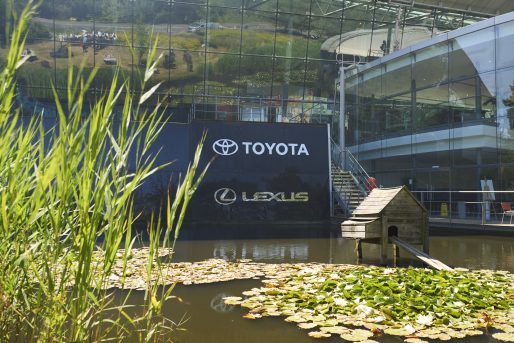
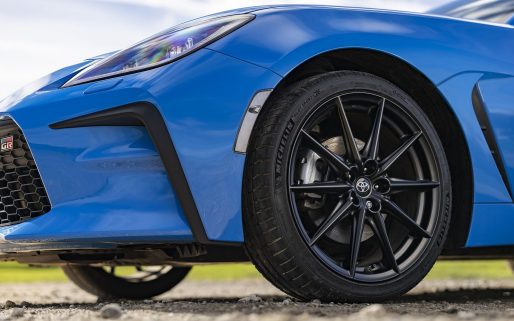
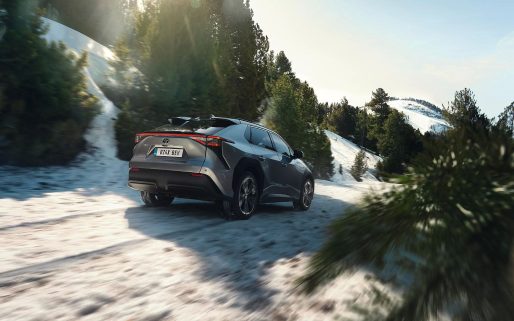
I have just ordered a Yaris Premier in Pearl white. I have been reading all of the online debates about the 12 volt battery discharge issue. Do I read correctly that the Premier edition with is remote locking etc has a low 12vdc battery sensor which will shut down the drain and therefore allow the remote unlocking and starting of the Premier? This is my wife’s car and she only does about 3000 miles a year, telling her to regularly either plug into a trickle charger or sit in the car for an hour in ready mode will not be recieved very well!!!
Good afternoon Michael,
Congratulations and thanks for choosing Toyota.
If you experience any problems with your new car’s battery, we’d kindly ask that you get in touch with your local Toyota Centre so they can investigate and advise further.
Thank you.
Where do go in Leeds. I am fed up of my new Toyota battery down if I don’t use the car for few days eg when going abroad!!!
I have a Yaris cross and the my car was flat on return from holiday – I will share the response from Toyota I am challenging this as charging the car whilst on holiday is impractical, why are customers not advised of this prior to purchase – we should not have to pay Toyota for a fix
Thank you for reaching out to us via our website’s contact page. I am very sorry for the issue you’ve had with the 12v battery in your vehicle. I completely understand how frustrating this is for you.
Response to my complaint
Regular start-up of the vehicle on conventional engines (normal petrol/diesel engines) needs approximately 20 minutes of running to put back into the battery what you remove on start up, so to maintain this battery we would suggest 1 hour of running once to twice a week.
The electricity stored in the 12-volt battery will discharge gradually even when the vehicle is not in use, due to natural discharge and the draining effects of certain electrical appliances. If the vehicle is left for a long time, the 12-volt battery may discharge, and the hybrid system may be unable to start. The 12- volt battery recharges automatically while the hybrid system is operating whilst you are driving the vehicle.
This information is correct if you have a 12V battery trickle charger, or a solar panel charger, and are confident using them, then these are a good option to keep the battery fully charged whilst the vehicle is stationary for a period of time.
When purchasing my Yaris cross 24 reg there was no mention of the issue of the battery draining if left unused. I contacted my dealer the day after I bought the car to question if I would have a flat battery if left at airport for 2 weeks and he said it would be ok I am now very worried as my car will be left for more than a week frequently. I enquired about a trickle charger but was told to go to Halfords. Why do Toyota not have them in stock if there is a problem with the 12v battery. How can I get one fitted asap.
Hi Anne, thanks for getting in touch.
There are plenty of trickle chargers available on the aftermarket. If you’d like to confirm your Toyota Centre we can pass a request over to them for you.
Thanks,
Toyota UK
I have the same and the answer is yes it will be flat I’ve just come back off holiday and it was flat – advised by dealer to buy a solar something for over £100 I think not – surely Toyota can find a solution – also would I have bought the car if I knew ?
The ‘problem with the battery’ as you describe it is that if power is taken from it over long enough a period of time the battery will eventually run out of power. This is unfortunately the nature of all batteries. If you spend a few hours driving every week you shouldn’t have much trouble keeping the battery fully. Otherwise your battery is likely to last longer and be more reliable if you occasionally put it on a trickle charger overnight, particularly if you do a lot of short trips or regularly leave your car without being used for weeks on end.
A full battery in good condition should easily last 6 weeks in a carpark and still start the car.
That’s a joke, I was ill last winter and my car (Peugeot 508) was left idle for 4 months. Turned key and started first time. Bought new 24 Yaris Cross this year, after a 2 week break came home battery is flat, happened twice since.
Totally unacceptable, not fit for purpose.
J
I am also having problems when I return from holiday, like a previous post I am a low mileage driver and on 3 occasions I have had to call out breakdown to restart my car.I am not at all confident in using a trickle down battery, I’m 80 live alone and find this very frustrating, had I known about this problem I don’t think I would have bought the car, however apart from this one very annoying thing I am pleased with the car overall.
Is it better to disconnect the 12v battery for a 6 month period or run a trickle charger that whole time? 2018rav4 hybrid
Hi Martin, thanks for getting in touch.
We’d recommend the trickle charger, the battery can still loose charge and health whilst disconnected.
Thanks,
Toyota UK
I have recently purchased a Toyota Yaris Cross. The car is less than a year old. I have to leave the car in a garage for a total of at least 4 months. I have bought a trickle battery charger to keep the battery topped up in that time. The charger manufacturer states that the battery should be disconnected from the car for additional safety. However reading some of Toyota’s comments, it seems it would be ok to leave the battery on the car and connect the trickle charger. Could you please advise as to what the best practice is?
Hi Bolghari, thanks for getting in touch.
We would advise against leaving the car standing for this period of time, it would be best if you are able to find a friend or family member to give it a run once or twice. Otherwise, we’d recommend the trickle charger.
Thanks,
My Corolla is only 18 months old and I use it regularly but only on short runs. The other day the battery was completely flat and had to pay the AA £75 to come and give it a jump start to get it to the Toyota dealer. They put in a new battery and said if I didn’t do 8000 miles a year it would go flat again. I am an 80 year old lady and feel that the dealer should have advised me of this problem as anyone of my age is unlikely to do 8000 miles a year. I now have to lay for a trickle charger. Surely Toyota should be sorting this common problem.
Hi Brenda, thanks for your comment.
This is a common occurrence for vehicles that are used for very short and infrequent journeys, something that was widely reported from all manufacturers during the lockdown period. The trickle charger and more regular use is the most suitable precaution and your local Toyota Centre can assess the health of the 12V battery.
Thanks,
Toyota UK
Hello, thank you for your reply to my message regarding auxiliary battery issues.
It would appear from the many complainants that Toyota are not taking
this issue seriously. Clearly there is a design issue with these vehicles and yet
Toyota can only advise owners to go and purchase a trickle charger or solar charger in order to keep the auxiliary battery healthy.
When I purchased my RAV 4 I was not told anything by the main dealer regarding this issue. There was no mention of the requirements described in your disclosure article.
I’m afraid after owning a 2016 RAV Hybrid for 5 years and having no issues at all to now find that this next generation RAV is designed with an in built failure mode is beyond me. This leaves me frustrated and extremely disappointed with Toyota and the company response.
I’ve just about had enough of this 2021 Yaris Dynamic…. dynamic it is NOT. I have an insurance tracker on this car and every 2 days without driving it I get the message ‘You car battery is very low’… in one day without driving, the 12V battery loses 1 volt, even attached to a 20V trickle charger…. Dealer fixes nothing… just excuses. Wish I had bought a non-hybrid VW Polo.
Hi Robert, we’re sorry to hear this.
Issues with the 12V battery can occur on any vehicle, more so in the winter. If you are not able to drive it more frequently, we would recommend a trickle charger. Your local Toyota Centre can assist further with this.
Thanks,
I bought a trickle charger to connect to my Yaris Cross as I am going to be away for 4 months. The charger manufacturer says the battery should be disconnected from the car for safety! Fron what I read i Toyota’s responses we do not have to disconnect the battery. Will it be safe to keep trickle charger on for 4 months?
I have just had the ridiculous and annoying situation that I have just come to my wifes’s 2023 Yaris Cross to find the 12V battery totally dead meaning that I could not open the doors – this is despite driving it for over a hour less than 24 hours previously! I tried the manual key from the fob which didn’t work at first but then did a couple of hours later – maybe because it was frosty early on but warmed up later giving the 12V battery a bit of a boost. A similar thing has happened many times before despite leaving the car in ready mode for 2 hours the day before. The car went back to the dealer when it was just a few months old and they said there was no fault and just charged the battery. We thought that we had done some wrong, maybe left something on overnight so didn’t progress it. . But it has happen numerous times since. The volt meter shows that even after 2 hours in ready mode the battery is still showing as 12v and the next morning it was down to 11.5v and the car would not start. I use a portable battery booster but unfortunately due to my wife’s arthritis she cant put the crocodile clips on. She has totally lost faith in the car and cant believe that a brand such as Toyota would sell such a poorly designed, sub standard car.
Seeing all of the similar comments here, and elsewhere, there is clearly a design flaw which Toyota is failing to acknowledge. Not being a legal person I dont know how to initiate a class action lawsuit against Toyota for this but it is something that should be done. The time, effort and distress caused by not knowing whether the car will start or not everyday is causing my wife immense upset – she has missed many appointments as she cant connected the battery booster and has to wait for me to be around.
Hi Doug. I sympathize with you. I own a 2021 Yaris Dynamic Hybrid, I’ve had exactly the same issues as you. Toyota does not address the problem. I have a trickle charger and it makes no difference. Car loses 1V in 2 days. Never in 40 years of car ownership have I had this issue. I used to park any of my older cars (including a Toyota Corolla and Auris) at the airport for 15 days and on return hey all started on first turn of the key. Too many things are running in the background when the ignition is off on modern cars, which depletes the battery in a few days…. not good and the most unreliable car I’ve ever owned…. but Toyota just goes on selling them to people without mentioning this problem.
I was looking at purchasing a Toyota Yaris Hybrid 72 plate but after reading about the battery issue it has really put me off. I am also a low mileage driver, maybe 3000 annually.
Out of interest, what is the cost of a replacement battery, does anyone know?
My Toyota Yaris Hybrid does not start every 3/4 months – the battery is flat. Been back to the garage several times. I have been told it is my driving pattern – I do not drive it enough! I bought this car as a “small run around” but it is not fit for purpose as it seems short journeys drain the 12v battery. Toyota do not advertise that these cars are not suitable for short journeys and once you have bought the car you are stuck with it until you can afford another car. I purchased a solar charger – that didn’t make any difference. Not fit for purpose and it seems like a design fault to me. Worse car I have every had for reliability and would not recommend it to anyone.